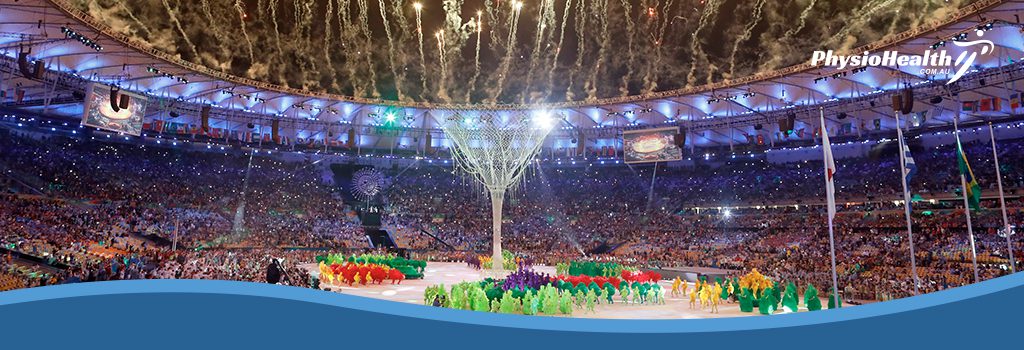Being the Senior Physiotherapist for the Australian Swimming Team at the Rio Olympic Games is the pinnacle of my 28 year career as a Sports Physiotherapist. Since my return many people have asked: “What was the most notable or ‘best’ experience during the Olympics?”
I have given the question some thought and found it very hard to pick one incredible moment that stood out from what was an all-round terrific Olympic campaign.
Being a small part of the Olympic team is humbling; to be able to offer my skills and knowledge to the Swim Team members and ultimately helping them to perform at their best was an honour. I have been lucky enough to work with the Swim Team over many years and I am always impressed with the high level of professionalism that these young Australians display on a daily basis year in and year out.
The sheer enormity of the “Olympics” first hit me upon arrival at the Olympic village. It resembled a small city made up of thirty-six 18-storey towers. Parks with recreational facilities surrounded these buildings, along with a transport hub as big as Spencer street station, a dining room matching the Melbourne Exhibition centre, a medical centre and dental care buildings. Observing the raw power of the Romanian and Bulgarian powerlifters in the communal gym was an experience in itself.
The Australian building was decorated in gold and green with posters of past Olympic greats lining the walls. Getting in an elevator with the likes of Luke Longley and Andrew Bogut or Sam Stosur and Sam Groth or casually chatting to Brendan Joyce about the Opals day made the whole experience special. Everyone felt part of the Australian team and I was part of that.
The emotional rollercoaster began on the first night when the Swim Team got off the marks with two gold medals. The Women’s 4 x 100m freestyle was won in world record time and things looked great for the girls later in the meet. Mack Horton beat the Chinese drug cheat and we were on top of the world. The Campbell sisters swam fast so medals in the individual 100m freestyle looked good and Mack looked unbeatable in the 1500m.
As the team physiotherapist, utilising manual skills becomes secondary to psychology during the event as the pressure of the Olympics naturally appears. Swimmers who have performed at the highest level internationally for years began to falter. The hardest thing is deciding what to say and what not to say to a devastated athlete while giving a post-race flush or assessing a sore shoulder before their next challenge in the pool.
The staff must maintain a consistent emotional output during the entire competition, so each day was treated the same. Every day was day 1 psychologically. The swimmers that don’t swim until the last day are still training hard and trying not to get caught up in the emotionally draining competition. One person who didn’t let the atmosphere affect him was Kyle Chalmers. Kyle was getting serious bilateral foot cramps every time he raced, so he was treated daily with neural stretches and calf and foot massages. The dietitian was also measuring fluid intake and other nutritional supplements. In the semi-final he cramped in the last 10 metres but still recorded the fastest ever 2nd 50 of a 100 freestyle. More foot massage and neural stretches and a game of kick to kick footy before the final. Kyle won gold again cramping 10 metres to go.
After the swimming finished I left the village totally exhausted and utilised my accreditation to get into as many events as I could watching Usain Bolt winning the 100m for the third time, and taking in the Triathlon and beach volleyball were among the memorable events to watch live.
After my first trip with the VIS in 1998 to the National Swim Championships in Brisbane I was determined to continue working with elite level swimmers and become an expert at treating swimmers injuries. David Morarty and I started working with the National Junior team in 2001. David was part of the 2008 Olympic team and Cory has travelled to Commonwealth Games and World Championships. Amelia, Gary and Scott have all been able to travel with international teams and will continue to do so. All the Physiotherapists at PhysioHealth can aim for professional experiences like the Olympic Games.

